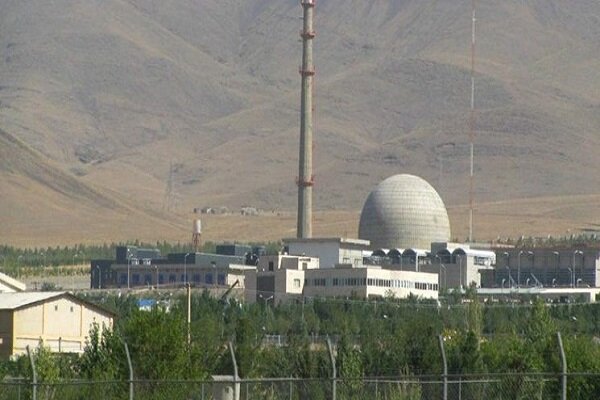US, Israel have failed to eliminate Iran’s nuclear program: nuclear policy analyst
“You cannot destroy knowledge and technology”

TEHRAN – In an interview with Australasian Broadcasting Corporation (ABC), a scholar specializing in Middle East security and nuclear policy says if Israel and the United States intended to destroy Iran’s nuclear program they have failed.
“If the U.S.-Israeli objective was to eliminate Iran's nuclear program, I’m confident they have failed,” Sayyed Hossein Mousavian says.
Mousavian, currently a visiting research collaborator with the Program on Science and Global Security at Princeton University, says the attack on nuclear sites is “counterproductive”.
The text of the interview reads as follows:
Question: What are you hearing from contacts on the ground in Iran about what’s left of Iran's nuclear program after the U.S. strikes over the weekend?
Answer: There’s no doubt that Iranian nuclear facilities were attacked, bombed, and damaged. Buildings, utilities, and possibly even some centrifuges were destroyed—partially, not completely. However, if the U.S.-Israeli objective was to eliminate Iran's nuclear program, I’m confident they have failed. Even if they launch another attack, or a hundred more, they will still fail—because you cannot destroy knowledge and technology. You can demolish buildings, but in the end, it’s counterproductive. The Iranians have the expertise and technological know-how to rebuild everything, whether it takes one month, five months, or six. So, what is the U.S.-Israeli ultimate objective? They cannot destroy Iran's nuclear capability because the knowledge is already there. Iran’s goal is to rebuild and return to its previous state. The fact remains: since the revolution, Iran’s nuclear program has remained peaceful. Iran is a member of the Non-Proliferation Treaty (NPT) and has granted more access to the IAEA than any other member in its history.
Q: I’ll just jump in there, because the IAEA found that Iran was in breach of its obligations and has 400 kilograms of uranium enriched to 60%. How is that part of a peaceful program?
A: What you just mentioned is exactly the kind of fake and manufactured narrative we constantly hear in Western media.
Q: This isn’t from the media. This is directly from the IAEA—the organization you just referred to.
A: Let me explain. Yes, the IAEA stated that Iran has breached some of its commitments and currently possesses 400 kilograms of uranium enriched to 60%. But that’s only half of what the IAEA said. Western media often presents half the truth but rarely the full picture.
Q: So, what is the full story regarding the 400 kilograms of enriched uranium at 60%?
A: I’ll explain—just let me finish the first point. Since 2003, the IAEA has issued over 100 reports and statements in the past 20 years, consistently confirming that there is no evidence of any diversion of Iran’s nuclear program toward weaponization. That’s fact number one.
Fact number two: Even if such evidence were to exist, it should be addressed by the United Nations Security Council, not by any single country. The United States violated UNSC Resolution 2231 and the IAEA’s Safeguards agreement. In response, Iran reduced its level of cooperation with the IAEA. Increased U.S. sanctions and pressures pushed Iran to expand its nuclear program, not to build a bomb, but as a bargaining tool. Enriching uranium to 60% is part of that strategy, meant to bring the U.S. back to the negotiating table.
Iran and the U.S. had agreed on “maximum transparency, international inspections, and verification measures.”
Q: So, the 400 kilograms are essentially a bargaining chip, as you say. Do you know if that stockpile was moved before the U.S. strikes this past weekend?
A: Everyone knows that President Trump withdrew from the Iran nuclear deal during his first term and laid the foundation for the current crisis. Later, in his second term, he invited Iran to return to diplomacy. Iran accepted. Steve Witkoff represented the U.S., and Abbas Araghchi represented Iran. They held three rounds of meetings in Oman and Rome, and they agreed on the main principles of a new nuclear deal. I was informed by Iranian sources that four major principles were agreed upon.
Q: Let’s focus on that. What can you tell us about the terms agreed upon between the U.S. and Iran before the Israeli strikes began?
A: First, both sides agreed on maximum transparency, international inspections, and verification measures. Iran accepted the highest standards available globally.
Second, they agreed that the 400-kilogram stockpile would be either diluted or exported, eliminating any potential risk of using it to build nuclear weapons.
Third, Iran agreed to lower enrichment levels to under 5%, which is within the limit for civilian use, thus removing concerns over 60% or 90% enrichment.
Fourth, Iran would cooperate fully with the IAEA to resolve all remaining technical issues.
These four principles were agreed upon in the first three rounds of talks. Israel was unhappy with the progress and launched attacks on Iran.
Q: So, let me ask you this: in your view, will Iran remain in the Non-Proliferation Treaty or leave it?
A: That depends on the U.S. If the U.S. commits to international rules and norms, respects the NPT, and upholds Iran’s rights under the treaty—just as it does for other members—then Iran will remain in the NPT and will not pursue nuclear weapons. Iran would also continue cooperating with the IAEA at the highest level of transparency to demonstrate the peaceful nature of its nuclear program.
Q: And if Iran were to leave the NPT, would there be an incentive to accelerate efforts toward developing a nuclear weapon?
A: Again, that depends on the U.S. If the U.S. continues its hostility—war, assassinations, terrorism, cyberattacks—then why shouldn’t Iran consider pursuing nuclear weapons?
Q: That sounds like a threat!
A: It’s a reaction to threats, mainly Israeli threats. Why are you reversing the narrative? Iran was attacked. Iran didn’t initiate attacks. Israel attacked Iran. The U.S. attacked Iran. And yet you’re asking about an “Iranian threat”?
Leave a Comment